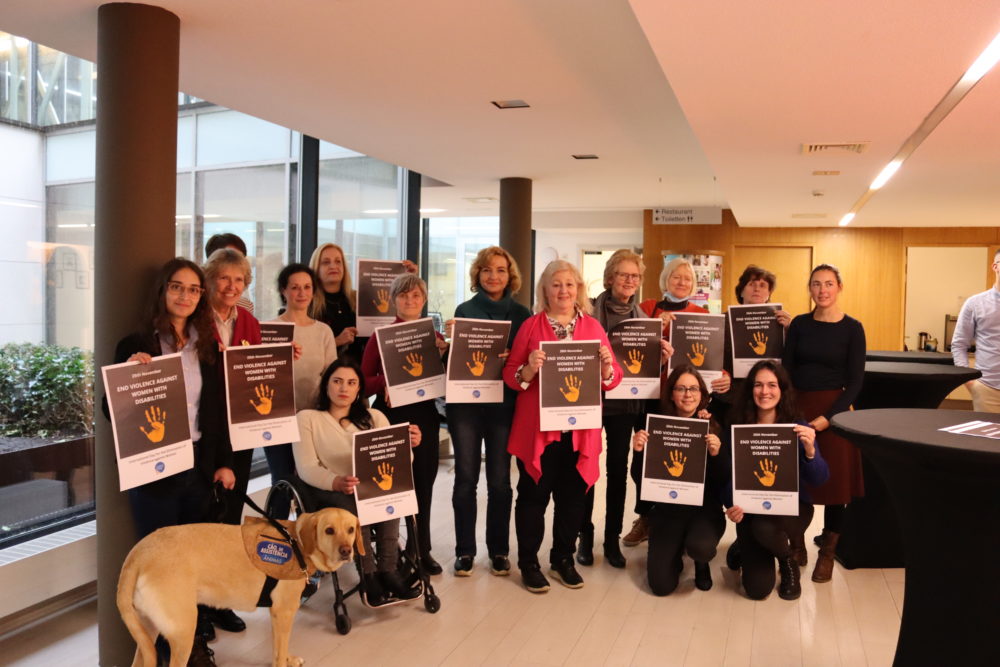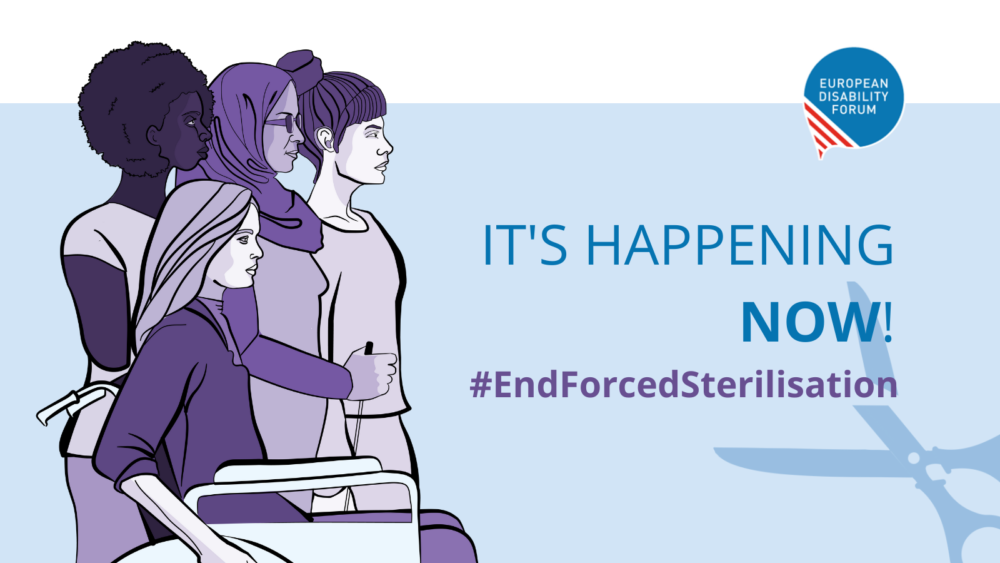On the International Day for the Elimination of Violence against Women, on 25 November, EDF is calling on the European Union (EU) to protect the rights of women and girls with disabilities.
EDF Women’s Committee: “No more violence against women and girls with disabilities!”
The European Disability Forum and its Women’s Committee condemn the situation in which countless women and girls with disabilities find themselves, as victims and survivors of gender-based violence. Furthermore, they encounter many barriers to claiming their rights and are left unprotected by a justice system which excludes precisely those who are most vulnerable.

Directive on Violence Against Women must protect women with disabilities
In March 2022, the European Commission published a landmark proposal for a law addressing violence against women.
The text of the Directive on Combating violence against women and domestic violence proposes to fill significant legislative gaps on violence against women and girls across the European Union (EU), especially on the legal definition of rape, the recognition of female genital mutilation as a criminal offence and the prosecution of key forms of online violence. It also seeks to harmonise penalties, limitation periods for the prosecution and decision on the covered forms of violence, and access to justice and support services for women and girls throughout the EU.
The proposal recognises the rights and needs of women and girls with disabilities with 14 references in several areas of the proposal, including in assessing victims’ needs, accessibility requirements for helplines, and aggravating circumstances for violence against women with disabilities, including in institutions.
Our proposals
However, many gaps remain. This is why EDF published a proposal of amendments to improve the text of the Directive and the rights of women and girls with disabilities.
- The Directive must introduce criminalise forced sterilisation in the European Union. Forced sterilisation is prohibited under international Conventions. Yet, at least 14 EU Member States still allow some forms of forced sterilisation in their legislation. EDF proposes the inclusion of a specific article prohibiting forced sterilisation.
- Accessibility, adequate support and training of professionals are key in ensuring access to justice and support services for women and girls victims of violence against women and domestic violence. The Directive must strengthen the existing framework established by the Victims’ Rights Directive and require accessibility of shelters and other interim accommodations. States must provide training related to disability-related needs and rights to professionals.
- Data and research are needed to identify the root causes of violence and prevent and combat violence against women and domestic violence. There is a lack of comparable data on violence against women and girls with disabilities in the EU. The Directive should require EU Member States to disaggregate data by disability to inform on the specific situation of marginalised groups.
Read EDF amendments below:
- EDF amendment proposed directive on combating violence against women (PDF document)
- EDF Amendment proposed directive on combating violence against women (Word document)
Petition on forced sterilisation. Join our petition!

Sterilisation of women with disabilities without their knowledge or consent is a widespread form of violence. Such harmful and terrible practices still takes place, in silence and with impunity. We must ensure that persons with disabilities can enjoy dignified lives free from violence and abuse. The petition is available in Bulgarian, Croatian, Danish, Dutch, French, German, Greek, Hungarian, Italian, Lithuanian, Portuguese, Romanian, Sign Language, Slovenian, Spanish, Swedish and Turkish.
Please sign our petition and spread the word in your network
Istanbul Convention
EDF continues to call on the EU and all European countries to ratify the Council of Europe’s Convention on preventing and combating violence against women and domestic violence (Istanbul Convention).
The ratification and implementation of this European Convention is essential to prevent, combat and sanction violence against women.
Today, EDF also provided to the Group of Experts (GREVIO) in charge of the monitoring of the Convention with a briefing on the inclusion of women and girls with disabilities.
Contact
Marine Uldry, EDF Human Rights Coordinator
marine.uldry@edf-feph.org